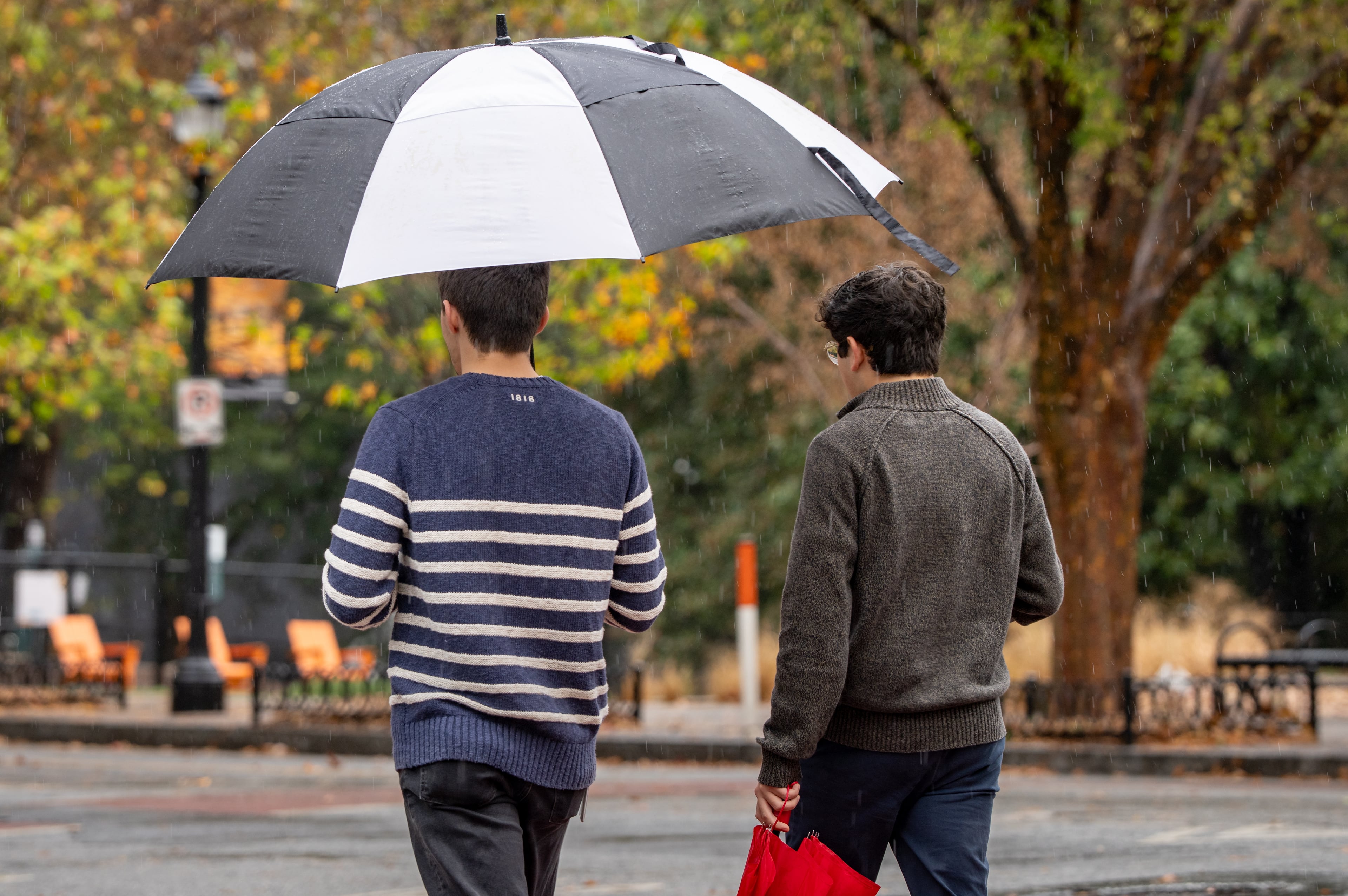Forgotten families in the holiday season

We often herald the holiday season as a time of joy, togetherness and celebration. Yet, for families with an incarcerated father, this time of year can be a stark reminder of absence, loss and disconnection.
The reality is that incarceration doesn’t just confine individuals — it ripples outward, profoundly affecting children, families and entire communities. During the holidays, these ripples become waves that can overwhelm the people left trying to hold everything together.

The statistics paint a sobering picture. According to the Bureau of Justice Statistics, approximately 92% of incarcerated parents are fathers. The Pew Charitable Trusts reports that 1 in 9 Black children has a parent in prison, compared with 1 in 57 white children, highlighting the disproportionate impact of mass incarceration on Black families.
For these children, the absence of fathers during the holidays isn’t just a logistic void; it’s an emotional chasm.
Research from the National Resource Center on Children and Families of the Incarcerated shows that children with incarcerated parents are at a higher risk for anxiety, depression, and poor academic performance. The holiday season — a time typically filled with memories and traditions — can magnify these challenges, creating feelings of isolation and sadness that linger long after the celebrations have ended.
The length of time a father is incarcerated also adds to the weight of this issue.
The Sentencing Project estimates that the average sentence length for incarcerated individuals in state prisons is nearly 10 years, with many fathers missing critical milestones in their children’s lives. Birthdays, graduations and family gatherings are lost to the cold walls of prison cells, and the holidays are a particularly cruel reminder of the distance between fathers and their families. For many children, the absence becomes normalized, creating a cycle of emotional detachment and fractured relationships that can take years, if not generations, to repair.
This issue is compounded by the stigma that society places on incarcerated individuals and their families. The incarcerated father is often viewed as undeserving of sympathy, and the family left behind frequently bears the brunt of societal judgment. This stigma isolates families further, discouraging them from seeking support and making an already difficult situation even more dire. During the holidays, this isolation is especially painful, as families grapple with how to explain an absent father’s absence while shielding their children from feelings of shame.
What’s often overlooked in these discussions is the humanity of incarcerated fathers.
While their actions may have led to their imprisonment, they remain fathers who love and long for their children. Programs that facilitate gift-giving from incarcerated parents to their children (like Fathers Incorporated’s Home for the Holidads and the Prison Fellowship Angel Tree initiative) underscore the potential for connection even behind bars. Such efforts remind us that rehabilitation and reconnection should be as central to the conversation as punishment.
The impact of incarceration during the holidays goes far beyond the prison walls. It touches the hearts of children, the strength of families and the fabric of our communities. We cannot afford to let these families feel forgotten. Healing starts with recognition and compassion.
We must confront the urgency of this issue with awareness and action.
Human service agencies, especially those working with fathers and families, need to prioritize incarcerated fathers in their programming and outreach. The holidays present a unique opportunity to bridge gaps, repair relationships and emotionally support struggling families. Creating pathways for incarcerated fathers to maintain meaningful connections with their children is not just an act of kindness — it’s an investment in the next generation’s well-being.
Families also play a critical role.
Supporting an incarcerated family member during the holidays doesn’t have to mean excusing their past actions; it can mean choosing hope over despair. A simple letter, a phone call or a visit can remind them that they are still part of a family and have a role to play. For children, maintaining a connection to their father can make an immeasurable difference in how the children see themselves and their future.
As we prepare to celebrate this holiday season, let’s not forget the families who face it with an empty chair at the table. Let’s challenge systems that perpetuate disconnection and urge them to embrace the humanity of fathers striving to stay connected to their children, even from behind bars. The true spirit of the holidays lies in compassion, in reaching out to the overlooked and the forgotten.
Together, we can make a difference, one family at a time.
Kenneth Braswell, chief executive officer of Fathers Incorporated, leads efforts to promote responsible fatherhood and strengthen families nationwide. With extensive experience in community development and father engagement, he drives impactful initiatives and policies. Learn more at www.fathersincorporated.com.


